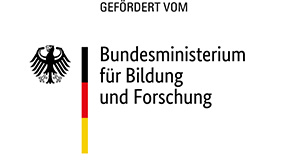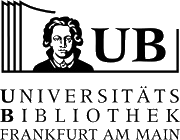Transfer ist Arbeit und Lernen
Transfer builds on working and learning
DOI:
https://doi.org/10.21248/qfi.34Schlagworte/Keywords
Transfer, Arbeit, berufliches Lernen, Profession, transfer, work, vocational learning, professionZusammenfassung
Im Zuge der bemerkenswerten Weiterentwicklung der empirischen Bildungswissenschaften und des gestiegenen Drucks auf die Bildungssysteme, international vergleichbare Leistungen zu produzieren, werden verstärkt Ideen einer „Rationalisierung pädagogischer Tätigkeit durch wissenschaftliche Ergebnisse oder Prozeduren“ lanciert. Die Nutzung wissenschaftlichen Wissens im Praxissystem erfordert eine aktive Veränderung dieses Wissens im Sinne der Logik des Praxissystems durch die dort Handelnden. Der Austausch zwischen diesen Systemen verläuft nicht automatisch, nicht durch einfache Ab‑ und Anleitungen oder durch direkte Intervention von einem System ins andere, sondern er stellt sich als 'echter' Prozess dar, in dem aktiv Übersetzungsarbeit geleistet wird. Diese Übersetzungsarbeit ist nicht unproblematisch. Transaktionen zwischen den beiden Systemen erfordern erstens Einsatz und gesellschaftliche Arbeit von den Beteiligten; zweitens geschieht etwas mit dem Angeeigneten, mit dem 'wissenschaftlichen Wissen'.
Diese Transferprozesse sind Arbeit, weil sie Zeit und Energie von den Beteiligten erfordern; sie sind Lernen, weil sie die Beteiligten und deren Handlungspraxis verändern. Es geht um berufliches Lernen von Lehrpersonen und um dessen Einbettung in die Entwicklungsprozesse der Organisation und der Profession. Für den erst genannten Aspekt gibt es gute Hinweise in der Fortbildungsforschung und darauf aufbauende didaktische und organisatorische Modelle. Dabei wird auch die Verknüpfung individuellen Lernens mit den Entwicklungsprozessen der Einzelschule berücksichtigt. Weniger wurde bisher thematisiert, dass professionelles Lernen auch im Medium der Profession und ihren kulturellen, dienstrechtlichen und arbeitsorganisatorischen Bedingungen stattfindet. Eine lernförderliche Profession betreibt die Entwicklung eines Berufswissens, betreibt Professionsentwicklung, schätzt die Ideen und Entwicklungen ihrer Mitglieder und schafft Foren, in denen das Berufswissen kritisch hinterfragt und weiterentwickelt werden kann.
Abstract
In the course of the remarkable development of empirical educational research and the increased pressure on educational systems to produce internationally comparable results, ideas of "rationalising educational activities through scientific results or procedures" are increasingly being launched. The use of scientific knowledge in the practice system requires an active transformation of this knowledge in the logic of the practice system. The exchange between these systems is not automatic, not by simple abstractions and instructions or by direct intervention from one system to another. Transactions between the two systems require, firstly, commitment and active work by the participants; secondly, something happens to what is appropriated: 'scientific knowledge' is transformed.
These transfer processes are work because they require time and energy from the participants; they are learning because they change the participants and their practice – they are about professional learning of teachers and these processes are embedded in the development processes of the organisation and the profession. When it comes to organising professional learning, we are provided with reliable recommendations by recent research on teachers‘ professional development and its linkage with organisational processes of the individual school. Less attention has been paid to the fact that professional learning also takes place in the medium of the profession and its cultural, legal and work organisation conditions. A profession that promotes learning pursues the development of professional knowledge, pursues professional development, values the ideas and inventions of its members and creates forums in which professional knowledge can be critically questioned and further developed.




